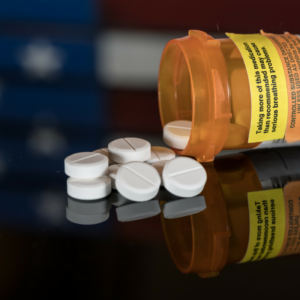by Dr. Shivam Patel, PharmD, BSPS, RPh, Director of Pharmacy Verification and Information | Mar 19, 2018 | Drug Safety
 Dear PharmacyCheckers,
Dear PharmacyCheckers,
I have seen, first-hand, the impact on patients due to rising medication costs. As a former community pharmacist in Massachusetts, my patients wouldn’t hesitate in expressing their shock at outrageous costs. I’d often hear a “Why do my meds cost so much?!” or “I’m certain I paid less for this last month.” Sadly, there wasn’t much I could do to help these patients. Some would reluctantly break their budgets to continue on with their drug therapy, while a heartbreaking majority would assure me they would be back with the money… and never return.
I am joining PharmacyChecker because it is my hope that I can lessen the number of these stressful situations for patients. I desire for patients to focus on getting better and staying healthy instead of worrying about how they will afford their medications. Throughout my pharmacy career, patient safety has always been the primary focus, and I relish the opportunity to bring that focus to PharmacyChecker. (more…)
Tagged with: Dr. Shivam Patel, pharmacist
by Gabriel Levitt, President, PharmacyChecker.com and Prescription Justice | Mar 16, 2018 | FDA enforcement
 As reported by the Associated Press, FDA Commissioner Scott Gottlieb announced a plan earlier this month to stop imports of opioid drugs by doubling the number of inspectors at international mail facilities. This type of targeted enforcement against opioid drug products is the stuff of real public health protection, but it can easily be misused to refuse online pharmacy orders of prescription medication imports. Millions of Americans are ordering medications from abroad because they cannot afford the exorbitant prices here in the United States. Prescription medication orders from licensed pharmacies in Canada and other countries should not be conflated with illegal importation of opioids.
As reported by the Associated Press, FDA Commissioner Scott Gottlieb announced a plan earlier this month to stop imports of opioid drugs by doubling the number of inspectors at international mail facilities. This type of targeted enforcement against opioid drug products is the stuff of real public health protection, but it can easily be misused to refuse online pharmacy orders of prescription medication imports. Millions of Americans are ordering medications from abroad because they cannot afford the exorbitant prices here in the United States. Prescription medication orders from licensed pharmacies in Canada and other countries should not be conflated with illegal importation of opioids.
(more…)
Tagged with: 708, drug imports, FDA, international mail facilities, opioids, Scott Gottlieb
by Gabriel Levitt, President, PharmacyChecker.com and Prescription Justice | Mar 9, 2018 | Drug Safety
 According to a new study, it turns out that, potentially, millions of people should have been prescribed over-the-counter drugs—not addictive narcotics. That’s a major finding considering 600,0000 Americans have died from drug overdose between 1999-2016. The Journal of the American Medical Association (JAMA) study shows that over-the-counter medications, such as ibuprofen, acetaminophen, aspirin and naproxen may work better than the hard, addictive stuff, such as Vicodin, Oxycontin, and Fentanyl.
According to a new study, it turns out that, potentially, millions of people should have been prescribed over-the-counter drugs—not addictive narcotics. That’s a major finding considering 600,0000 Americans have died from drug overdose between 1999-2016. The Journal of the American Medical Association (JAMA) study shows that over-the-counter medications, such as ibuprofen, acetaminophen, aspirin and naproxen may work better than the hard, addictive stuff, such as Vicodin, Oxycontin, and Fentanyl.
We recognize and respect the role that properly prescribed prescription narcotics have played and will continue to play in pain management. However, we also believe that Big Pharma makers and sellers of opioids caused this national crisis of drug addiction by helping to create looser prescribing rules. In other words, while at one-time opioid medications were viewed as a last resort to treat serious pain, drug companies pushed medical education that led to the prescribing of opioid drugs. The U.S. Centers for Disease Control and Prevention has revised its guidelines to encourage far tighter prescribing practices, but, as this study indicates, their revisions came way too late.
Patients Who Took Opioids
The JAMA study looked at 248 patients with varying levels of pain, back pain being the most prevalent form affecting 65% of patients. Others had pain associated with hip, knee and that associated with osteoarthritis. One group of patients were prescribed opioid medications. They started with fast acting morphine, a combination of hydrocodone and acetaminophen, or oxycodone. Long acting medications, morphine or oxycodone, were used when the short acting treatments were not working. When those did not work, fentanyl patches were prescribed.
Patients Who Took Non-opioids
Another group took NSAIDs. If NSAIDs did not work, then the group took other prescription medications, such as gabapentin (Neurontin) or pregabalin (Lyrica). If those didn’t work, then tramadol, which is an opioid-based painkiller but less addictive than the ones in the opioid group.
Results of the Study
Patients in the non-opioid group reported equal or better results in pain alleviation than patients in the opioid group. Admittedly, I’m confused because tramadol was in the non-opioid group, even though it’s an opiate-based medication. Also, one shortcoming variable of the study is that patients knew what medications they were taking, which could have biased their reporting.
Overall, the study strongly demonstrates that millions who were prescribed strong opioid drugs and became hooked could just as well have been treated initially with regular OTC pain medications. Not surprisingly, patients could have also saved billions of dollars over the last few decades by taking aspirin instead of brand-name prescription opioids.
This has really caught my attention because the industry-funded groups like the Alliance for Safe Online Pharmacies and Partnership for Safe Medicines equates importation from Canada with the opioid crisis. Instead of urging people to seek alternatives to opioids, the pharmaceutical industry propagates the senseless idea that increasing imports of lower cost (non-pain) medications from Canada will worsen the opioid crisis. They would rather point fingers than address the sickness of their complicity in creating the drug addiction crisis in the first place.
Tagged with: Alliance for Safe Online Pharmacies, CDC, JAMA, NSAIDs, opioids, OTC, Partnership for Safe Medicines
by Gabriel Levitt, President, PharmacyChecker.com and Prescription Justice | Mar 2, 2018 | Politics and policy
 The heat is rising on the pharmaceutical industry because of high drug prices. The politically and economically middle-of-the-road editors at Bloomberg published an opinion piece this week called “U.S Prescription Drug Costs Are a Crime.” The gist in the article is that policy tweaks are not enough, pointing out that President Trump’s rhetoric on drug prices is much stronger that the reality of his actions. Major changes are needed, such as drug price negotiations in Medicare and making importation of lower-cost medication legal (something one in ten Americans already do, according to Bloomberg).
The heat is rising on the pharmaceutical industry because of high drug prices. The politically and economically middle-of-the-road editors at Bloomberg published an opinion piece this week called “U.S Prescription Drug Costs Are a Crime.” The gist in the article is that policy tweaks are not enough, pointing out that President Trump’s rhetoric on drug prices is much stronger that the reality of his actions. Major changes are needed, such as drug price negotiations in Medicare and making importation of lower-cost medication legal (something one in ten Americans already do, according to Bloomberg).
I love this article, but it doesn’t state clearly why drug prices are a crime. The answer is tens of millions of Americans aren’t filling prescriptions because of them each year. Many get sick and some even die because of them. For some cancer patients, it’s extortion. “Give me the money,” pharma says. “Or die.” Your money or your life.
Still, we all know that a crime is an act that violates laws of a governing authority as proven through due process of those laws. And our laws allow the pharmaceutical industry to charge the prices referred to as a “crime” in Bloomberg.
That said, there is litigation targeting drug companies, pharmacies, and insurance companies/PBMs for violating laws to keep drug prices high. Examples include insulin price fixing, collusion between health insurers and pharmacies, and pharmacy kickbacks to PBMs. However, to an extent not found in Australia, Canada, New Zealand and the United Kingdom, U.S. laws permit—even encourage—increasing drug prices out of reach for patients who need them. Lawful but unjust.
It gets sicker and more unjust: technically, a patient who re-imports a medication from Canada because it’s her only affordable option is subject to jail and fines. No, that’s never happened, but it’s despicable that the law makes it a possibility while drug prices continue to climb.
Justice and law, when it comes to prescription drug prices in America, are fully out of whack.
Tagged with: bloomberg, collusion, crime, drug price negotiation, importation, kickbacks
by Gabriel Levitt, President, PharmacyChecker.com and Prescription Justice | Feb 23, 2018 | Drug Importation

I’m telling you Canadian drugs are safe but vote against importation.
In the Utah House of Representatives, Health and Human Services Committee, there was a meeting a few weeks back to discuss Rep. Norman Thurston’s drug importation bill. The bill’s aim is to lower prescription drug costs for Utah by importing lower-cost medications from Canada. The committee passed it 9-2. A week later, the Utah House passed the bill 39-31! But in that committee meeting, during the public session where organizations came out in favor and against the bill, something unique happened.
During his remarks against Thurston’s drug importation bill, one Mr. Peter Pitts said, and I quote from the audio clip: “I will tell you one thing in defense of Canada…If you drive up across the border and you go to a brick and mortar pharmacy and you get a product. That product is safe and effective; just as safe and effective as a U.S. product.”
I’ve followed and written about Big Pharma’s positions on importation for over 15 years. Its mantra and that of its hired guns is that the U.S. system for regulating pharmaceuticals is the world’s “gold standard.” As you’ll discover, Mr. Pitts, as I see it, is one of those hired guns and a notable one. Therefore, it’s great and fun to have him on the record, clearly (emphatically) stating that Canada’s system for regulating prescription drugs and the drugs sold in Canadian pharmacies are just as good as the ones sold here. That means Canada is the Gold Standard, too!
Listen to the whole hearing.
Note to all my fellow Americans that didn’t already know: if you live close to Canada and can’t afford your medication, then, according to Mr. Pitts, the medication there is damn good…not to mention a lot less expensive. Did you also know that federal law bans U.S. Customs Border Patrol from preventing people who are traveling back from Canada from importing small quantities of prescription drugs when they are for personal use? See: Can I drive to Canada to fill a prescription?
Who is this guy? Who cares? (more…)
Tagged with: Canada, Canadian pharmacies, CMPI, Peter Pitts, Pfizer, phrma, thurston, utah
by Lucia Mueller, President, PharmacyChecker.com | Feb 16, 2018 | Drug Prices
Whe n it comes to getting your prescription medication for an affordable price, nothing compares to comparing prices. We talk about online, international options for prescription drug savings a lot. Americans use our site, PharmacyChecker.com, to find much lower prices available abroad for their prescribed medications. They also use us to find discount coupons for their local pharmacy.
n it comes to getting your prescription medication for an affordable price, nothing compares to comparing prices. We talk about online, international options for prescription drug savings a lot. Americans use our site, PharmacyChecker.com, to find much lower prices available abroad for their prescribed medications. They also use us to find discount coupons for their local pharmacy.
After a disappointing visit to Walgreens, Garrick Feldman, editor in chief of the Arkansas Leader, did it the old-fashioned way by calling around his town. In doing so, he discovered how people are price-gouged by not only Big Pharma—but by their local pharmacies. His story is awesome. (more…)
Tagged with: CVS, Ofloxacin Otic, walgreens, Walmart








